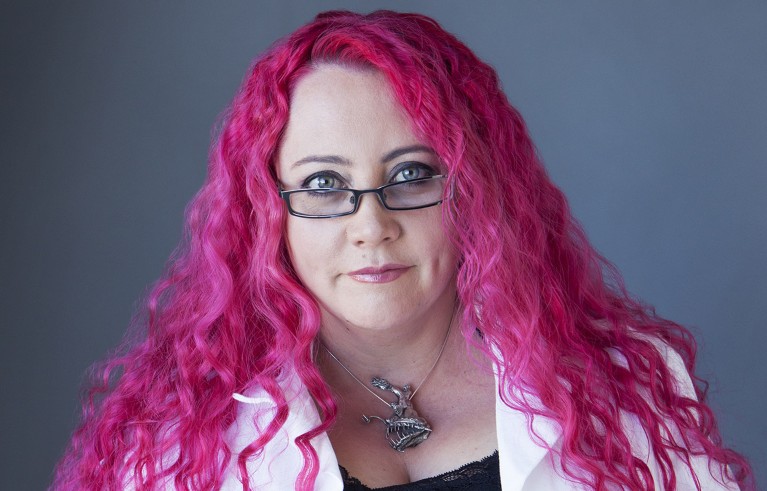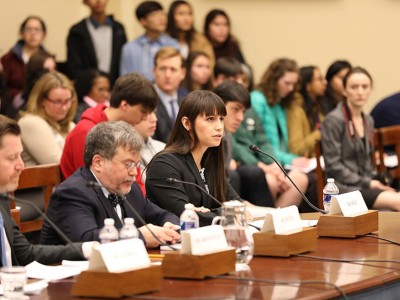
A court has awarded microbiologist Siouxsie Wiles NZ$20,000 (US$12,000) in damages.Credit: Photographers Inc.
A New Zealand court has ruled that the University of Auckland breached its obligations to protect high-profile microbiologist Siouxsie Wiles from the intense abuse and harassment she experienced while providing public information about the COVID-19 pandemic. But the court did not find that the university had suppressed Wiles’ academic freedom when it advised her to keep her public commentary to a minimum to reduce the harassment.
There is much debate globally over the extent to which universities are responsible for protecting academics who are harassed for engaging in discussions about their work on social media or in the media.
‘I hope you die’: how the COVID pandemic unleashed attacks on scientists
The attacks on Wiles began in March 2020, shortly after she began providing commentary about COVID-19 in the media and on social media. The attacks included abusive messages on social media and by e-mail, Wiles’ personal details being posted online, and telephone calls. Events escalated to public confrontations and her home being defaced. In her case against the university, Wiles alleged that despite numerous approaches to the university seeking support in dealing with the abuse, the institution’s policies and practices were “unfit for purpose”, she said in a statement.
In her judgment, Judge Joanna Holden of the Employment Court of New Zealand ruled that the university had breached its contractual obligations to protect Wiles’ health and safety. She found that it failed to act in good faith in its response to the sustained abuse, and that some of its responses to Wiles exacerbated her distress. The judge also acknowledged that the COVID-19 pandemic was a challenging time and that the university made efforts to comply with its health and safety obligations, although they were ultimately insufficient. She ordered the university to pay Wiles damages of NZ$20,000 (US$12,000), the maximum allowed under the New Zealand Employment Relations Act, but did not order a penalty against the university.
Wiles had also alleged that the university’s instructions to reduce her public activities around COVID-19 were inconsistent with her and the university’s obligations — under the Treaty of Waitangi — to support Māori, New Zealand’s Indigenous peoples. However, the judge found there was no breach in these obligations.
Part of the job
One of the contested issues was whether the activities from which the abuse stemmed, including Wiles’ social-media posts and some public and media engagement, were part of her work — the university argued that they were outside activities. The judge, however, found that Wiles’ public COVID-19 commentary was part of her work and made her a target of abuse.
Wiles, who is still employed by the University of Auckland, says she felt vindicated by the decision, particularly by the judge’s recognition that the media and public commentary she provided during the pandemic were indeed part of her job. She told Nature that the most important section of the judgment for academics might be “that providing this expert commentary is part of our jobs and that, because it’s part of our jobs, our employers need to keep us safe”.
In response to the judge’s finding that the University of Auckland had not suppressed Wiles’ academic freedom by recommending that she minimize her public commentary to reduce the harassment, Dawn Freshwater, vice-chancellor of the university, said in a statement that the ruling was significant. It “will be well received by universities in New Zealand and around the world”, she said.
But Jack Heinemann, a geneticist at the University of Canterbury in Christchurch, New Zealand — who was an expert witness on academic freedom for Wiles — says that in making that ruling, Holden did not imply that occupational health and safety concerns could be used to overrule academic freedom. “One doesn’t trump the other,” says Heinemann.
Physicist Shaun Hendy, who originally co-filed a grievance with Wiles against the University of Auckland but agreed to a settlement when he left the university for a new job, says the judgment should be a wake-up call for institutions to “up their game” when it comes to dealing with harassment. Universities need to be “thinking about what’s best practice for protecting their staff when they are undertaking media commentaries”, he says.
When asked by Nature about the university’s current strategy to manage staff health and safety online, a spokesperson said that by mid-2023, the institution had implemented the recommendations of an external security and safety audit undertaken in 2021. The recommendations called for extra support and resources for university staff facing harassment and threats.

